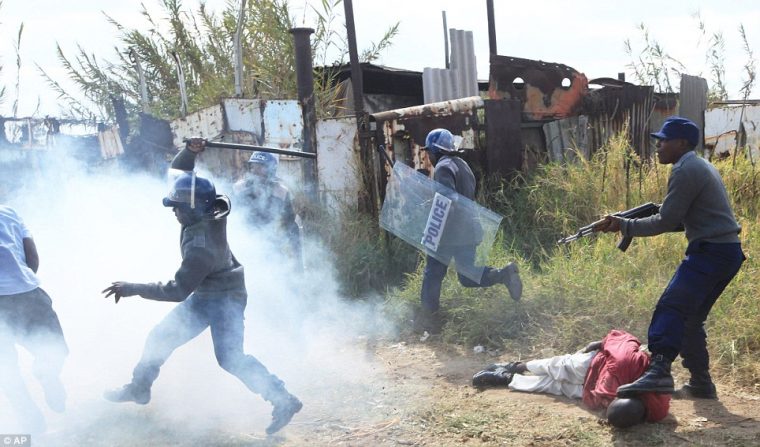
Legal expert Alex Magaisa says the recent police ban on demonstrations is unconstitutional because Zimbabwe’s constitution specifically states that statutory instruments must not infringe or limit any of the rights and freedoms set out in the Declaration of Rights.
Police yesterday issued a ban on demonstrations until 16 September through a statutory instrument.
Eighteen opposition parties going under the umbrella of the National Electoral Reform Agenda planned to stage a peaceful demonstration today but the leading party, the Movement for Democratic Change, announced through a press statement that the demonstration had been postponed until 16 September.
It did not give any reasons.
Writing in his personal blog, Magaisa said the primary element to note was the nature the language used in the constitution. Use of the words “must not” clearly showed that this was a mandatory prohibition.
“A perusal of SI 101A shows that it clearly infringes upon a number of fundamental rights and freedoms. It bans the right to demonstrate peacefully. By so doing it also bans freedoms of expression and assembly,” he wrote.
“It infringes the right to human dignity and a number of political rights. On that count alone, SI 101A fails the constitutional test.”
Below is Magaisa’s argument in full:
Why SI 101A banning protests in central Harare is unconstitutional
By Alex Magaisa
The Zimbabwe Republic Police has issued an order banning public demonstrations in central Harare. This order was issued by the Chief Superintendent Newbert Saunyama, in his capacity as the Officer Commanding Harare Central Police District. The order, Statutory Instrument 101A of 2016 (hereafter SI 101A), was issued in terms of the Public Order and Security Act (POSA), a notoriously repressive piece of legislation.
POSA is a replica of the Law and Order (Maintenance) Act (LAMA), a key pillar of the repressive machinery of the colonial regime. The irony is that the current users of POSA were victims of its colonial replica, LOMA. So the latest ban on protests in Harare by the regime led by Robert Mugabe would not have been out of place in Ian Smith’s Salisbury.
Continued next page
(387 VIEWS)